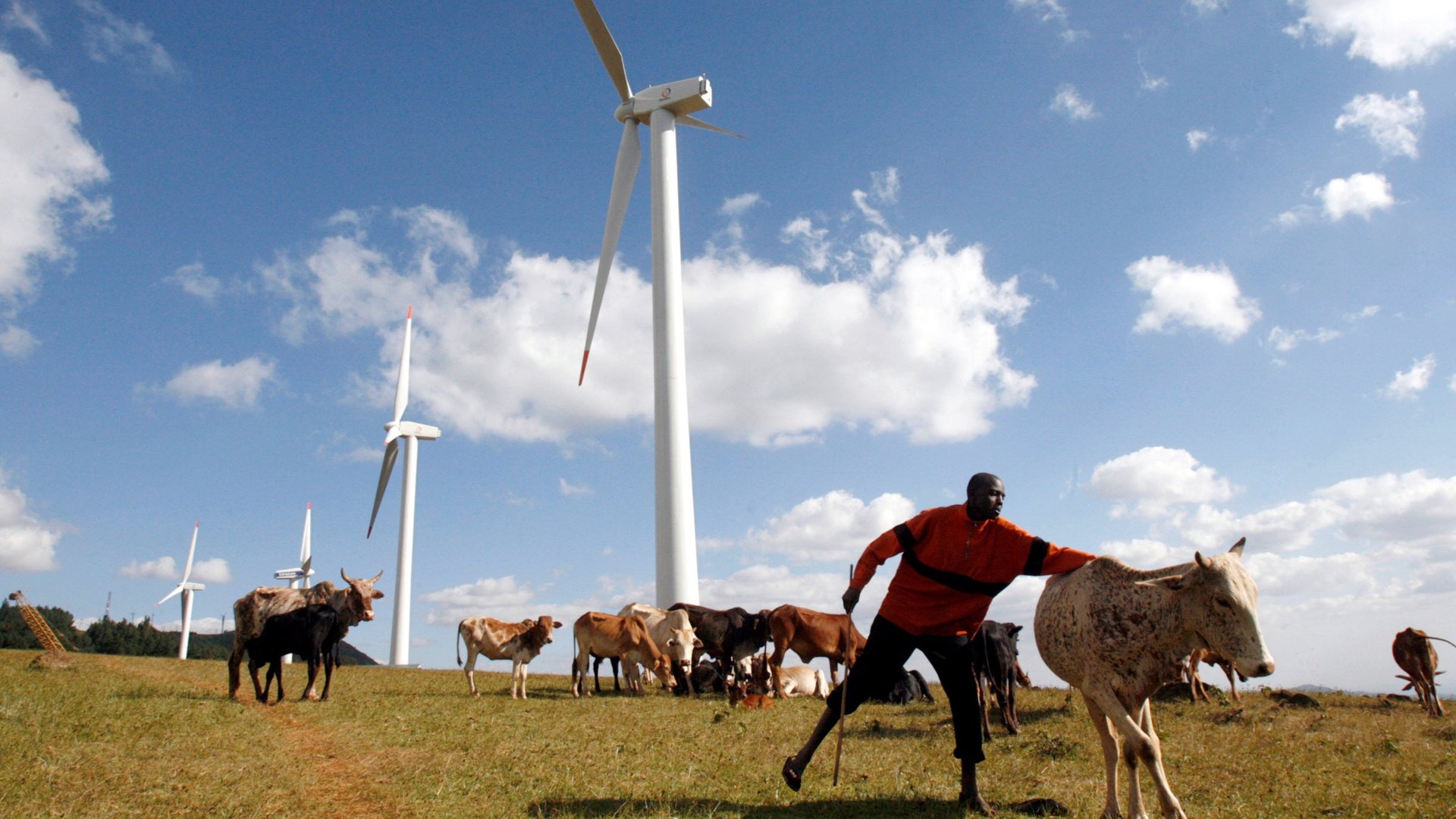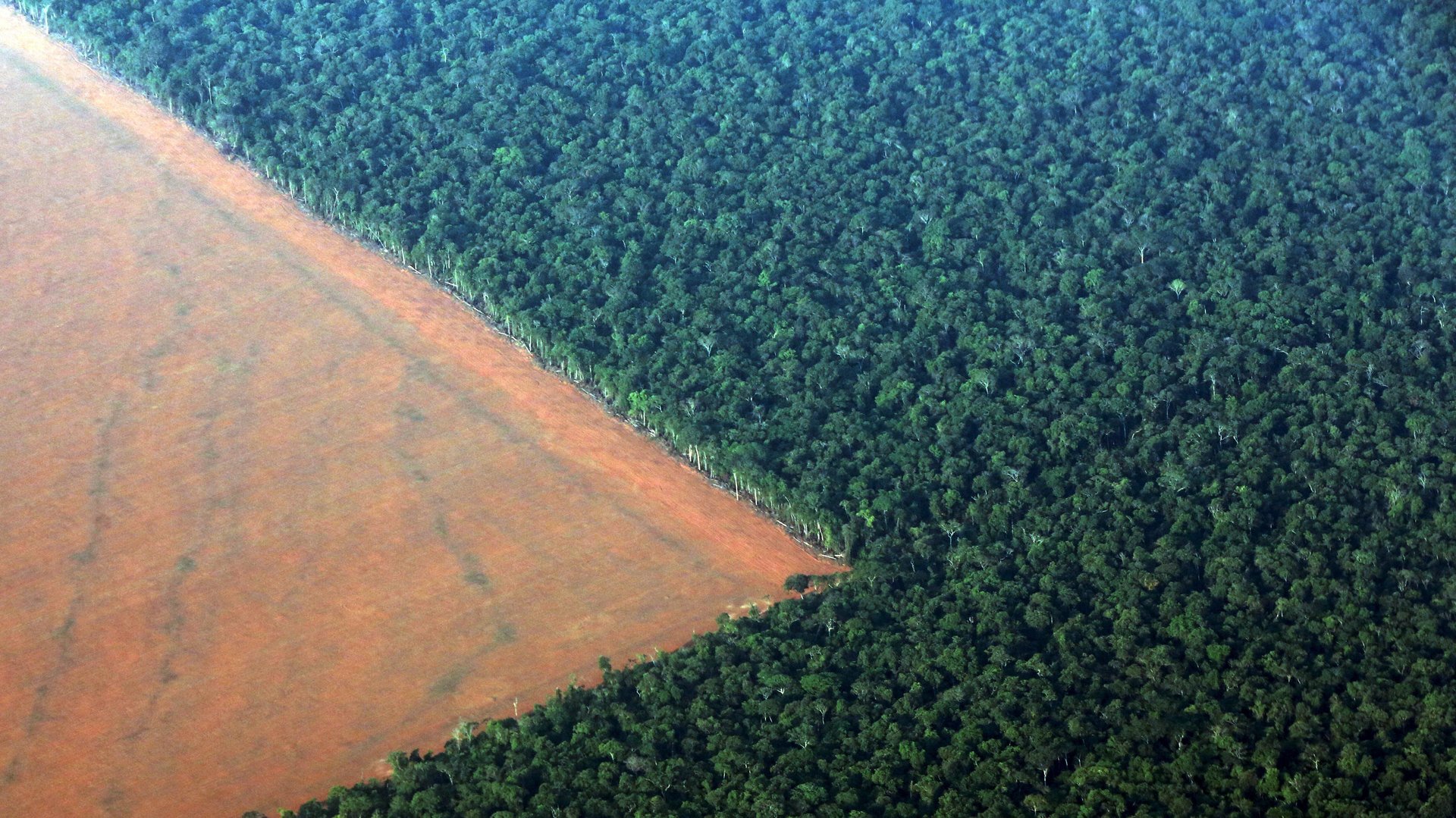The Race to Zero Emissions: Battery boost, flood insurance, glaring flaring
Hello Quartz readers!

Hello Quartz readers!
The San Francisco meetup is happening on Tuesday the 18th at 6pm. Reply to this email for details about the venue.
Here’s what happened over the past week that helped or harmed the world’s chances to cut greenhouse-gas emissions to zero.

🔽 Decreases emissions
1️⃣ The number of people employed in the global renewable-energy sector grew to 11 million in 2018. A third of those jobs are held by women, compared with only 22% in the oil and gas sector.
2️⃣ The newly launched Terraton Initiative aims to trap 1 trillion metric tons of carbon dioxide in soil by paying farmers to do the job. The carbon is trapped in the form of organic matter that crops or plants produce. Experts I spoke to raised important issues with the idea, including the difficulty of verifying whether carbon has actually been trapped and it will stay there.
3️⃣ A report from consultancy AT Kearney says that more than 60% of the meat people eat in 2040 will not come from dead animals. The report says: “The large-scale livestock industry is viewed by many as an unnecessary evil. With the advantages of novel vegan meat replacements and cultured meat over conventionally produced meat, it is only a matter of time before they capture a substantial market share.”
4️⃣ Electric-car roundup: Northvolt, a European battery maker, raised $1 billion to fund its battery plant in Sweden. Volkswagen also committed to a joint venture with Northvolt, with a plan to build a battery plant in Germany. Fiat Chrysler signed a deal with European utilities Enel and Engie to expand its electric-car charging network. China is struggling to keep up the momentum of electric-car sales.
Stats to remember
As of June 13, the concentration of carbon dioxide in the atmosphere was 414.71 ppm. This past May was the fifth-warmest on record. The previous Mays that surpassed it were in the years 2016, 2015, 2017, and 2018. Do you see a pattern?

0️⃣ Net-zero (for now)
1️⃣ The UN Environment program questioned the value of carbon offsets. “Buying carbon credits in exchange for a clean conscience while you carry on flying, buying diesel cars and powering your home with fossil fuels is no longer acceptable,” it wrote.
2️⃣ Even as climate change worsens floods, the number of people with flood insurance in the US is falling. “People are reluctant to spend money for a problem that they are convinced won’t happen to them,” said a former government official. “That’s financial planning based on hope, not facts.”
3️⃣ An investment in flood defenses in the UK—about £600 million ($755 million) each year—pays for itself. A new study found that flooding would have caused the country £1.1 billion more in annual damages without the defenses.
4️⃣ A warmer world will likely be a less peaceful one. Climate change will substantially increase the likelihood of armed conflict.
5️⃣ “If climate change causes more volatile frequent and extreme weather events, you’re going to have a scenario where these large providers of financial products—mortgages, home insurance, pensions—cannot shift risk away from their portfolios,” Rostin Benham, a top US financial regulator, told the New York Times. “It’s abundantly clear that climate change poses financial risk to the stability of the financial system.”
The creeping mosquito latitude
As the world heats up, more of the planet becomes habitable for mosquitos. Already mosquitos cause 100 million Dengue infections each year, including more than 10,000 deaths. Without climate action, 2.25 billion more people could be at risk of dengue by 2080. The regions most at risk: the US, China, and Japan.

🔼 Increases emissions
1️⃣ From Axios: “Oil producers around the world wasted as much natural gas in 2018 as South and Central America use in an entire year… Intentionally discarding natural gas by burning it off as carbon dioxide—a practice called ‘flaring’—increased 3% to 145 billion cubic meters last year compared to 2017. In the US, flaring rose by nearly 50%, driven by booming oil production and a relative lack of infrastructure to contain associated natural gas.”
2️⃣ Extreme weather last year, specifically unusually hot or cold days, made the world use more energy and thus increased emissions, according to BP’s annual statistical review of world energy. The US saw a 3.5% increase in annual emissions, after a decade of declines.
3️⃣ Australia has given the controversial Carmichael coal mine all the environmental permits it needs to begin operations. Beyond the fact that many experts believe it will be an uneconomical endeavor, this article in The Conversation has an interactive that walks you through all the environmental problems the mine could cause.
4️⃣ In the span of a week, two hydrogen-fueling stations caught fire—one in Norway and one in California. Drivers of fuel-cell vehicles in both countries were affected by the shortage in the number of active hydrogen-fueling stations.
5️⃣ Before Mobil merged with Exxon, new documents show that Mobil used tax-exempt donations to promote the company’s own interests and undermine environmental regulations. The documents were revealed as part of an investigation that ExxonMobil is facing over claims that it failed to warn investors and the public about known climate risks.
Have a great week ahead. If you like this newsletter, share this link with friends and colleagues. Please send tips to [email protected].